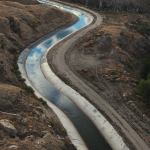Academy Screenings: Asif Kapadia on making ‘Amy’
The Aspen Times

Courtesy photo |
If You Go …
What: ‘Amy’ at Academy Screenings
Where: Harris Concert Hall
When: Tuesday, Dec. 29, 8:15 p.m.
How much: $20/GA; $15 Aspen Film members; Free/AMPAS, BFTA, guild members
Tickets: Harris Concert Hall and Wheeler Opera House box offices; http://www.aspenshowtix.com
Familiar as the story of a rock star dying from substance abuse at 27 has become, and as overexposed as Amy Winehouse was in the press, the woman you meet in Asif Kapadia’s “Amy” is not the Amy Winehouse you think you know.
The film, which screens Tuesday at Aspen Film’s Academy Screenings, is a visceral viewing experience, resulting largely from the way Kapadia stitched together home movie footage into an intimate and devastating documentary chronicling Winehouse’s short life. Instead of talking heads and voiceovers, we get Winehouse unguarded, unrehearsed. We see her as the girl next door – smart and funny and born to sing. We see her precipitous fall into addiction and self-destruction from an equally personal vantage point.
The result is a complex, disturbing portrait of an artist and of media in the 21st century.
Kapadia didn’t know, going into the project, that he’d have any of that raw material. He didn’t know, he said in a recent phone interview, whether he even had a film to make. He did know that nobody wanted to talk to him.
“There was such a distrust of the media and journalists and filmmakers and newspapers,” he said. “Everyone around her felt she had been picked on and humiliated and attacked in the press. The last thing they wanted to do, if they cared about her, was to be involved in a film about her so soon after she died.”
He bridged that gap of distrust by starting without a camera. With a tape recorder in Kapadia’s hand and no apparent agenda, Winehouse’s lifelong friends, her first manager Nick Shymansky, her boyfriend Blake Fielder and others began to open up.
“My whole thing was, ‘I don’t have a film, I don’t have an idea. I just want to talk to people and once I do that I will understand what the film will be,” he explained. “I just listened and said, ‘I will make the film [based on] what you tell me and what I hear and what I learn.’”
From there, people started offering him photographs, videos and phone messages that helped him paint a all-too human picture of Winehouse in good times and in bad.
His best-known documentary before “Amy” also proved helpful. The acclaimed “Senna,” about the Brazilian Formula One driver Ayrton Senna, established his credibility with those initially reluctant to assist the filmmaker.
The Winehouse that emerges in the film is a witty kid with an immense talent. In its opening moments, we glimpse her singing “Happy Birthday” as a child at a birthday party – her gripping, soulful voice and her charisma already taking shape. The private Winehouse, before alcohol, drugs and bulimia warped her, couldn’t be farther away from the “trainwreck” Winehouse of the tabloids.
“Once I had seen that material, to be honest, I kind of began to fall in love with her, and then I began to understand that everyone I talked to was in love with her,” Kapadia said. “Everyone was her best friend.”
But “Amy” is no celebrity hagiography. It doesn’t shy away from the thorny issues of her drug abuse and emotional trauma. Ominously, at one point, asked about what she’ll do if she gets famous, Winehouse says, “I’d probably go mad.” She does in many ways, as the 2006 album “Back to Black” and the single “Rehab” send her career into the stratosphere.
Along the way, the public forgets that Amy Winehouse is human.
As the press runs wild with Winehouse’s personal struggles and late night comedians make jokes about her addictions, and as her father and management continue to push and exploit her, the film subtly raises a discomfiting question: what were we, the viewers, doing at the time?
“It made me quite angry, and I wanted the audience to feel like this,” Kapadia explained. “This is something that everyone around her felt could have been stopped. It wasn’t written that her life was going to go this way. So the idea of making the audience not only fall in love with her, but also feel uncomfortable at some point, and ask, ‘Were we complicit?’ ‘Did we laugh at the comedians?’ ‘Did we join in a bit?’ ‘Did we click on a video of her in a really bad way?’ I wanted that to be a part of the viewing experience.”
Kapadia, a Londoner who lived not far from Winehouse’s native Camden during the media frenzy, didn’t follow the tabloid stories closely and wasn’t a big Winehouse fan before making the film. Of course, like everyone else, he was at least tangentially aware of the headlines. He’s hopeful that, in time, the salacious stories will fade and the Winehouse he found while making the film will remain timeless.
“If you type in a word search of Amy online, I’d love for a beautiful picture of her to come up – rather than her at her worst – of her as this happy, healthy artist that she used to be,” he said.
On the heels of “Amy,” Kapadia made a feature fiction film, “Ali and Nino,” a World War I period piece which is due to premiere next month at the Sundance Film Festival.
“It freshens up the palate a bit,” he said of moving to fiction before deciding on his next documentary subject.









